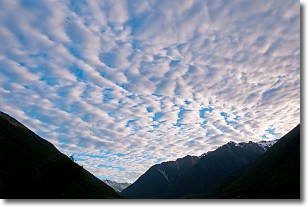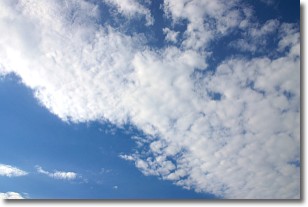Weather Alert in Alaska
Flood Watch issued August 12 at 11:08AM AKDT until August 14 at 7:00PM AKDT by NWS Fairbanks AK
AREAS AFFECTED: Southern Seward Peninsula Coast
DESCRIPTION: * WHAT...Flooding caused by excessive rainfall is possible. * WHERE...Including the following area, Southern Seward Peninsula Coast. This includes the cities of Nome, White Mountain, And Golovin. * WHEN...Through Thursday evening. * IMPACTS...Small creeks and streams may rise rapidly and high water is likely along main stem rivers as the runoff makes its way downstream. The highest water levels on main stem rivers near the coast will likely be approximately 1 day after rainfall stops. Rainfall is expected to stop late Wednesday afternoon. * ADDITIONAL DETAILS... - Predicted rainfall amounts and pre-event water levels on rivers are similar to the August 2024 event. Similar impacts are expected. - Http://www.weather.gov/aprfc - If you live near or along the Niukluk River and other rivers draining the Bendeleben Mountains, secure boats and other property stored along the river banks.
INSTRUCTION: You should monitor later forecasts and be alert for possible Flood Warnings. Those living in areas prone to flooding should be prepared to take action should flooding develop. Stay tuned to further developments by listening to your local radio, television, or NOAA Weather Radio for further information.
Want more detail? Get the Complete 7 Day and Night Detailed Forecast!
Current U.S. National Radar--Current
The Current National Weather Radar is shown below with a UTC Time (subtract 5 hours from UTC to get Eastern Time).

National Weather Forecast--Current
The Current National Weather Forecast and National Weather Map are shown below.

National Weather Forecast for Tomorrow
Tomorrow National Weather Forecast and Tomorrow National Weather Map are show below.

North America Water Vapor (Moisture)
This map shows recent moisture content over North America. Bright and colored areas show high moisture (ie, clouds); brown indicates very little moisture present; black indicates no moisture.

Weather Topic: What are Stratus Clouds?
Home - Education - Cloud Types - Stratus Clouds
 Next Topic: Wall Clouds
Next Topic: Wall Clouds
Stratus clouds are similar to altostratus clouds, but form at a
lower altitude and are identified by their fog-like appearance, lacking the
distinguishing features of most clouds.
Stratus clouds are wider than most clouds, and their base has a smooth, uniform
look which is lighter in color than a nimbostratus cloud.
The presence of a stratus cloud indicates the possibility of minor precipitation,
such as drizzle, but heavier precipitation does not typically arrive in the form
of a stratus cloud.
Next Topic: Wall Clouds
Weather Topic: What are Altocumulus Clouds?
Home - Education - Cloud Types - Altocumulus Clouds
 Next Topic: Altostratus Clouds
Next Topic: Altostratus Clouds
Similar to cirrocumulus clouds, altocumulus clouds are
characterized by cloud patches. They are distinguished by larger cloudlets
than cirrocumulus clouds but are still smaller than stratocumulus clouds.
Altocumulus clouds most commonly form in middle altitudes (between 2 and 5 km)
and may resemble, at times, the shape of a flying saucer.
These uncommon formations, called altocumulus lenticularis, are created by uplift
in the atmosphere and are most often seen in close proximity to mountains.
Next Topic: Altostratus Clouds
Current conditions powered by WeatherAPI.com




